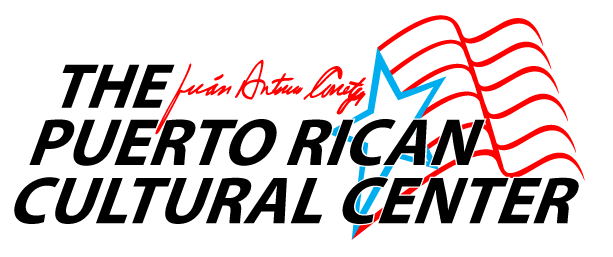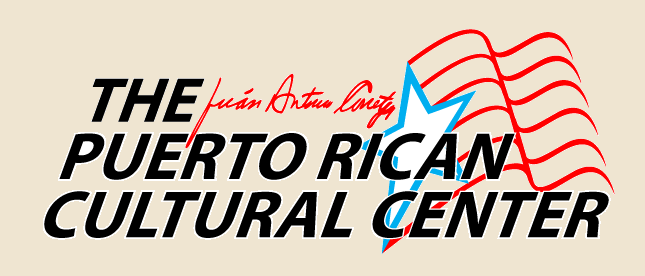 The Roberto Clemente Community Academy 40th Anniversary Symposium, held on Saturday, September 20, concluded with a panel titled “A Pedagogical Framework for Citizenship of the Americas.” The panel included presentations by Jonathan Rosa (Assistant Professor, University of Massachusetts Amherst), Orlando Hernández (Professor Hostos College), and José López (Executive Director, Puerto Rican Cultural Center).
The Roberto Clemente Community Academy 40th Anniversary Symposium, held on Saturday, September 20, concluded with a panel titled “A Pedagogical Framework for Citizenship of the Americas.” The panel included presentations by Jonathan Rosa (Assistant Professor, University of Massachusetts Amherst), Orlando Hernández (Professor Hostos College), and José López (Executive Director, Puerto Rican Cultural Center).
Jonathan Rosa opened the panel by emphasizing the need to embrace a new vision of citizenship that challenges inequalities associated with political, linguistic, and educational borders. He drew connections between recent events in Ferguson, MO and the ongoing debate surrounding immigration reform, in order to highlight the ways that contemporary forms of citizenship fail to ensure full societal inclusion. Rosa pointed to his research among Latin@ youth in Chicago to demonstrate the ways that people are reimagining borders through the creation of diasporic identities and hybrid language practices. He concluded by suggesting that the Community as a Campus educational model challenges educational borders by linking schools, homes, and communities in innovative ways.
 Orlando Hernández presented an historical perspective on transnational citizenship in the context of Eugenio María de Hostos’ dream of unifying Latin America, as well as his efforts toward the creation of an Antillean Federation between Puerto Rico, Cuba, and the Dominican Republic. He highlighted Hostos’ support for independence not only in his native Puerto Rico, but also in Cuba and throughout Latin America. Hernández located Hostos’ views of independence and citizenship in relation to his promotion of progressive education, the abolition of slavery, and equality between the sexes. Based on this range of commitments, Hostos came to be viewed as a “Citizen of the Americas.” Thus, as Hernández pointed out, Hostos provides us with a powerful historical vision of more just, transnational forms of citizenship.
Orlando Hernández presented an historical perspective on transnational citizenship in the context of Eugenio María de Hostos’ dream of unifying Latin America, as well as his efforts toward the creation of an Antillean Federation between Puerto Rico, Cuba, and the Dominican Republic. He highlighted Hostos’ support for independence not only in his native Puerto Rico, but also in Cuba and throughout Latin America. Hernández located Hostos’ views of independence and citizenship in relation to his promotion of progressive education, the abolition of slavery, and equality between the sexes. Based on this range of commitments, Hostos came to be viewed as a “Citizen of the Americas.” Thus, as Hernández pointed out, Hostos provides us with a powerful historical vision of more just, transnational forms of citizenship.
 José López concluded the panel by reminding the audience of Chicago’s unique history of Latin@ (im)migration and solidarity. As the only major U.S. city with large, longstanding Puerto Rican and Mexican populations, Chicago has emerged as a context in which generations of Puerto Ricans and Mexicans have struggled collectively to respond to various forms of societal marginalization. Building from these insights, López suggested that Latin@ consciousness and cultural citizenship arose in Chicago. This explains how Luis Gutiérrez, a Puerto Rican born and raised in Chicago and thus a U.S. citizen by birth, has become the strongest Congressional advocate for comprehensive immigration reform. López ended his presentation by calling for a Citizenship of the Americas in which the free flow of goods across borders is met with the free flow of people with dignity.
José López concluded the panel by reminding the audience of Chicago’s unique history of Latin@ (im)migration and solidarity. As the only major U.S. city with large, longstanding Puerto Rican and Mexican populations, Chicago has emerged as a context in which generations of Puerto Ricans and Mexicans have struggled collectively to respond to various forms of societal marginalization. Building from these insights, López suggested that Latin@ consciousness and cultural citizenship arose in Chicago. This explains how Luis Gutiérrez, a Puerto Rican born and raised in Chicago and thus a U.S. citizen by birth, has become the strongest Congressional advocate for comprehensive immigration reform. López ended his presentation by calling for a Citizenship of the Americas in which the free flow of goods across borders is met with the free flow of people with dignity.




